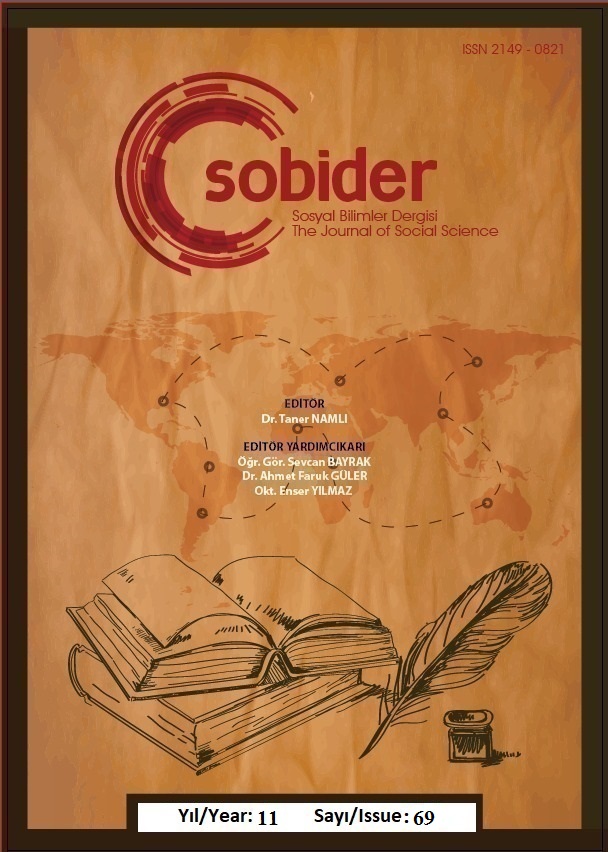Author :
Abstract
Bu çalışma İran'ın Irak'taki yumuşak gücünü ve bunun yarattığı etkiyi araştırmaktadır. Özellikle ülkede önemli etkiye sahip olan Arap Şii çoğunluğa odaklanmakla birlikte ana odak noktası, Saddam Hüseyin yönetiminin Amerikan güçleri tarafından yıkılışı ve Irak'ın 2003 sonrası dönemidir. Çalışmanın giriş bölümünde 2003 sonrası Irak'a kısa bir genel bakış yapılmakta ve 2006'daki Şii-Sünni mezhep çatışması, IŞİD'in ortaya çıkışı ve İran'ın özellikle yumuşak gücünün stratejik kullanımı yoluyla daha sonraki etkisi gibi önemli olaylar vurgulanmaktadır. Ayrıca çalışma, gücün çeşitli biçimlerine (yumuşak, sert ve akıllı) özel olarak odaklanarak uluslararası ilişkilerde güce ilişkin bir çerçeve üzerinde duracaktır. Bu çalışmanın en onemli odağı, İran'ın iktidardaki ideolojisi olan Velayeti Fakih'in etkisi, İran'a sadık politikacılar ve partilerin etkisi, medya, kültür, eğitim ve gerici eğilimlerin teşviki gibi unsurları kapsayan İran'ın yumuşak güç araçlarıdır. Çalışma, İran'a karşı öfke besleyen, onun yumuşak gücünü ve diğer tüm nüfuz biçimlerini reddeden Iraklı Şiilerin duygularının ardındaki nedenleri araştıracak. Ayrıca Şii havza medreseleri ile Irak'taki Şiiler arasındaki farkları, Kum ve İran ekollerini karşılaştırmayı amaçlıyor.
Keywords
Abstract
This study delves into Iranian soft power in Iraq and the impact it wields. It focuses on the Arab Shi‘ite majority in particular, who holds significant influence in the country. The primary focus of this study lies in the post-2003 era of Iraq, which marks the fall of Saddam Hussein’s authority at the hands of American forces.The introduction of the study provides a brief overview of Iraq after 2003, highlighting pivotal events such as the Sunni-Shi‘ite sectarian war in 2006, the emergence of ISIS, and the subsequent influence of Iran, particularly through the strategic use of soft power. Further the study will elaborate on a framework concerning power in international relations with a spesific focus on the various forms of power (soft, hard and smart).The greatest focus in this study is on Iran’s soft power tools encompassing elements such as Iran’s ideology, the influence of the jurist, politicians and parties loyal to Iran, media, culture, education, and the promotion of regressive tendencies. The study will explore the reasons behind the sentiments of Iraqi Shi‘ites who harbor resentment towards Iran, rejecting its soft power, along with all other forms of influence. It additionally seeks to understand the differences between the religious seminary and the Shi‘ites of Iraq as compared to their counterparts in Qom and Iran.





